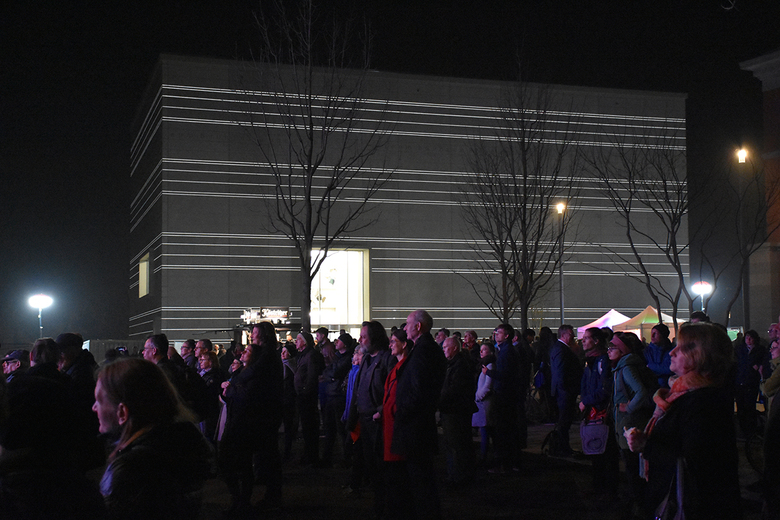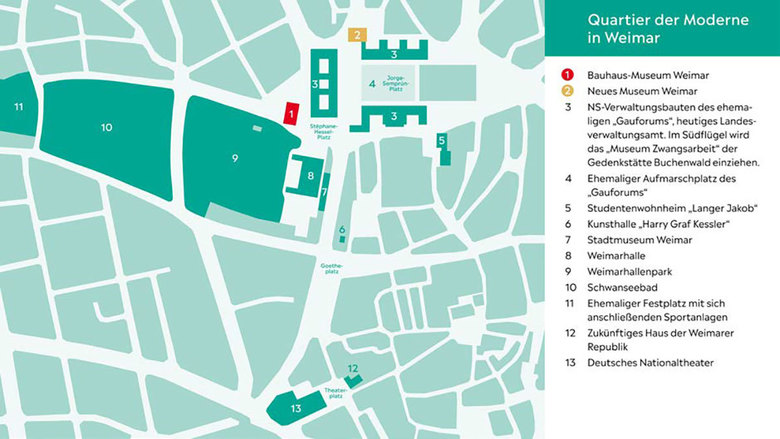Bauhaus Museum Opens in Weimar
John Hill, Katinka Corts
10. d’abril 2019
Photo: Andrew Alberts © heike hanada laboratory of art and architecture 2019
Last weekend the Bauhaus Museum, designed by Heike Hanada, opened to the public in Weimar, Germany. More than 1,000 design and art objects from the founding of the Bauhaus in 1919 to the school's move to Dessau in 1925 can be seen in the museum.
The new Bauhaus Museum, situated north of downtown Weimar next to the "Gauforum" from the time of National Socialism, looks tiny despite its sizable exhibition space of 2,000 square meters (21,525 sf). The museum borders Weimarhallen Park, so architect Heike Hanada designed a geometrically simple cube to give the new building a strong urban presence. The gray facade has striped panels that emphasize the horizontal, even at night when illuminate lines stand out from the muted surfaces.
Photo: Andrew Alberts © heike hanada laboratory of art and architecture 2019
The route to this facade was not easy or straightforward. Originally designed as all-glass, the facade was worked on in parallel by specialists but eventually was changed to concrete due to scheduling and other issues. Some have compared the result as bunker-like, but to Hanada it's a success. She explained in a 2017 interview, "The current experiment is much more interesting and closer to our time than a glass façade that simply hangs in front of a facade." Furthermore she said, "The networking between city and park was particularly close to my heart, because the museum is defined by its function as public space. This is also reflected in the interior design with two-story spaces and cascading stairs, which invite you to stroll and linger."


